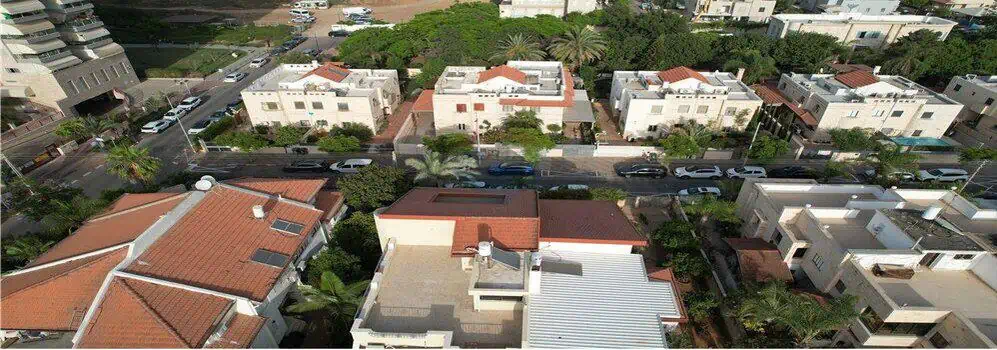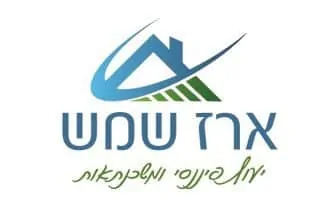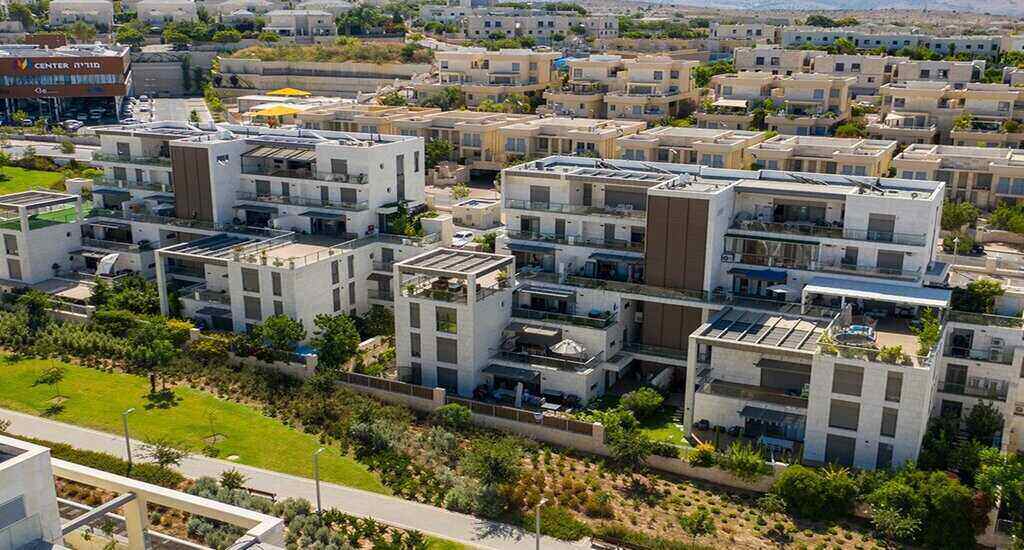Mortgage in Israel: Everything You Want to Know

Many people in Israel choose to make the biggest business deal of the lives, taking out a mortgage in Israel, without an in depth research of all the data, and without clear understanding of this issue. This results, in the most part, in mortgage repayments and high interest rates, that lead to a decrease in the standard of living and difficulties in their monthly payments.
If you found your way here, then you decided to make the right decision, and receive all the relevant information before taking out a mortgage. In any case, using the services of an experienced professional in the field of mortgages, is the best channel to start the process in the best way. This can no doubt save you hundreds of shekels in mortgage repayments.
What is a Mortgage?
A mortgage is basically a loan. However, unlike other loans, in a mortgage, the property is mortgaged to the bank until the completion of the payments. Additionally, the bank charges interest rates on the loan, which usually last between fifteen to thirty years.
There are different different type of mortgage plans. The bank tries to sell the product that will result in the greatest profit. Many people who take out a mortgage, and are not experts in the field, fall to a plan that demands very high payments. The consequence of these mistakes are felt for many years.
The Process of Taking Out a Mortgage in Israel
The process of taking out a mortgage in Israel, contains four steps. It is important to decipher the market situation when taking out a mortgage, as well as the loaner’s financial situation.
Step One: Receiving an Ishur Ekroni from the bank
After the mortgagor located a property that he is interested in purchasing and its price; he sends the bank a mortgage application, called “Bakasha Ekronit”. This application is given to the bank in order to receive an “Ishur Ekroni” for the mortgage, which confirms that the mortgagors can take the mortgage amount needed, in relation with their financial situation. The Ishur Ekroni is valid for two months.
In order to receive and Ishur Ekroni, one needs to bring a copy of their ID, and its appendix, pay slips from the last three months (and if one is self-employed, then he will need to bring tax reports as approved by an accountant), bank account statements from the last three months, and any other mortgage or loan reports if applicable. If everything is in order, the Ishur Ekroni will arrive within a few days.
Step Two: Choosing a Mortgage Plan
In this step the mortgagors choose a the most lucrative loan plan. Obviously, the longer the repayment plan spans on a longer time period, then the lower the repayments amount will. However, the larger the repayment plan is, the larger the cumulative interest payments will be. Therefore, it is important to choose the best balance between the payment period and the size of the loan.
Choosing the right plan is very important. Every plan has its advantages and disadvantages, and it is important to carefully review all the terms and details of the mortgage. Therefore, it is possible to assess the different plans on behalf of the mortgagors.
Step Three: Opening a Mortgage Portfolio and an Insurance Policy
After both parties agree on a mortgage plan, the mortgagors have a short window of time, where they must present the bank with a number of documents, including: an official appraisal of the property, a power of attorney from a notary, and the mortgage insurance policy.
The insurance policy is integral in receiving a mortgage from the bank. The insurance must include property and life insurance, for each of the mortgagors. After purchasing the policy, the mortgagors must sign off the mortgage insurance to the bank, which in turn will transfer the money directly to the bank in case the mortgagors need to activate the insurance.
Step Four: Transfer the Funds to the Seller, and Beginning of the Payments
Upon the signature of the mortgagors, and receiving the mortgage approval, the principal amount is transferred to the sellers of the property, while the property’s ownership is transferred to the mortgagors. It is at this time that the monthly mortgage repayments begin, which includes the principal amount together with the interest rate.

Start Shopping Mortgage Before Finding Your Property
Whether finding the right place to live or an exciting investment property, it’s always tempting to start with your local real estate listings.
While browsing the market may make for an entertaining pastime, you could find yourself in an unfortunate situation if you don’t start with your mortgage instead.
If you’re considering buying in the immediate (or even the distant) future, the first person you should call is a mortgage broker.
They’ll help you understand your financial standing and the amount and terms you can expect from a mortgage.
For many buyers, a realistic look at their situation can be a major wake-up call.
Even with a mortgage broker in your corner, you may find that your realistic mortgage outlook doesn’t line up with your expectations.
If you’ve already looked into mortgages using online calculators, you may find that some very important details have been left out. If you start looking for a property before you find out how much you can really afford, you’re setting yourself up for disappointment.
Even worse, you could find your dream home and not be able to secure your mortgage in time to make an offer.
The mortgage process takes time, so you want to get started and bring together all of your documents well in advance of making any offer.
Required Documents
It is important to be ready with all the documents needed for the process, because the period of the Ishur Ekroni is limited, as is the period of time until the signing of the terms of the plan:
- Copy of the couple’s ID and appendix
- Pay slips of the last three months (for self-employed: tax audit report with a CPA approval)
- Bank account statements for the last three months
- Additional loans report, if applicable
- Appraisal report of the value of the property, or a document stating the price of the property
- Notarial power of attorney
- Mortgage insurance policy approval
Buying a House in Israel: How much can you loan?
Here there is a difference between Israeli residents (anyone with an Israeli ID card) and foreign residents.
Israeli Resident
An Israeli resident can loan up to 75% of the price of the property, on the condition that this is the first property bought. It should be noted that if one of the spouses already owns a property, then the other spouse will not be able to receive this mortgage rates in Israel , and this purchase will be considered a second purchase. In purchasing a second property the bank allows for a mortgage up t0 50% of the price of the property.
Foreign Resident
A foreign resident can receive a mortgage up to 50% of the price of the property. In certain situations, the mortgage banks in Israel might be open to offer higher percentages, or offer other sources of loans that can offer 70% of the price of the property. Like the Israeli resident, the foreign resident can choose between different mortgage plan, and also ask for a foreign currency plan (which is important to note, that is limited to only a third of the mortgage).

Don’t Underestimate the Importance of Your Down Payment
For many home buyers, the point of seeking out a mortgage is to put as little down as possible.
However, that likely isn’t the best strategy when it comes to finding a mortgage for your home purchase.
The 75% and 50% limits set for Israeli and foreign residents are only the maximum values. In many cases, it’s best to put more money down and reduce your overall loan.
Of course, this means less principal to pay interest on. However, there’s more to it than that.
The higher your loan, the more risk the bank sees.
If you put down a larger downpayment relative to property value, the bank considers you less of a risk and may offer improved interest rates.
You can enjoy both peace of mind and considerable savings over the span of your mortgage. Setting aside more money for additional costs is also a prudent decision.
Additional Costs
Buying a house in Israel is an expensive process. There are additional expenses, which need to be taken into account when planning your budget. Some of the expenses are very necessary. Here is a partial list:
Purchase Tax- Many buyers are not aware of this tax. In the case of a first purchase, the purchase tax is calculated at a lower rate. The more properties that are owned, causes the purchase tax to rise.
Brokerage Fees- A transaction made via a professional broker cost money. There are those who charge 2%-3%, and there are those who charge more. Unfortunately, people avoid trying to lower the broker fee. In many cases it is possible to save thousands of NIS.
Legal Fees – A lawyer is an integral part of the transaction. The lawyer’s job is to make sure that the property being purchased is actually registered in the seller’s name, in order to rule out fraud and to make sure that all the property documents are correct.
Appraisal Fee – The role of the appraiser is to assess the value of the property and viability of the transaction. The appraiser’s summary is forwarded to the bank in necessary.
Registration Fee – The registration of the property in the name of the buyer in the property registry. This consists of several costs (each fee does not exceed 200 NIS).
Transferring Fee – If the purchase is made by foreign residents, then transferring money to a bank in Israel involves various fees, which must be clarified with the bank.

Key Difference from US Mortgage
Key Difference From US Mortgages Much of the information you’ll find about mortgages online is based on US mortgages. However, specific requirements and even general principles don’t necessarily hold true for Israeli mortgages. Here are some key points to keep in mind so you don’t confuse the two different systems
- US mortgages are typically handled entirely by the lender, including details such as appraisal, title searches, and lien registration. The Israeli system puts far more onus on the borrower, who must handle most details themselves.
- In the US, regulations such as the Real Estate Settlement Procedures Act protect borrowers and compel disclosure. In Israel, disclosure requirements are much less extensive. It’s up to you to understand the terms of your mortgage, not for the lender to explain it.
- Many US mortgages are available with fixed rates for the entire duration of the loan term. However, Israeli fixed-rate loans are often adjusted for inflation. This can make a massive difference if you’re using an online calculator based on US mortgages.
- In the US, there are no regulations limiting how much of a home’s value can be mortgaged. While incredibly uncommon, a mortgage for the entire value of a home is possible. In Israel, this is limited to 50% or 75%, depending on your residency status.
- Israeli loans can offer greater versatility than US mortgages in some cases, as they can be structured as a combination of smaller loans. You may be able to diversify your borrowing to suit your unique financial situation.
These are just some of the differences between US and Israeli mortgages. To avoid applying online advice based on the wrong mortgage system, be sure to seek out professional advice before getting an Israeli mortgage.
The Importance of the Services of an English Speaking Israeli Mortgage Broker
The process of taking out a mortgage is not easy, and requires a great deal of proficiency and an in depth understanding of the details of the various mortgage plans, while being able to negotiate. The benefits of a mortgage broker in Israel are many:
- Save Time – An experienced and professional mortgage broker in Israel handles the entire bureaucratic issues. He knows exactly which documents are needed, and how to find them. He is familiar with the process and know how to work with the banks; thus saving valuable time.
- Save Money – Did you know that the difference between mortgage plans signed without a mortgage broker and those signed with a mortgage broker, can reach tens of thousands of shekels? Banks have no interest in saving you money. Their goal is to get you to sign for the most profitable plan for themselves. The mortgage broker works for you. He is an expert in different plans, an expert their advantages and disadvantages. He knows what is best for your and negotiates with the banks in order to give you the best offer, with the best conditions.
- Knowledge – Knowledge is power. Save yourself the time to study this confusing field. It is very complex, that an inexperienced person who does not come from the field, cannot cover all the details.
Save yourself the time, and hire the most professional consultant who will work for you. - The Nuances of Israeli Mortgages – If you’re a foreign buyer or have become a new resident of Israel, you’ll need help navigating the Israeli mortgage system.
The rules and strategies from the US and other countries don’t apply here, and you need someone who knows Israeli mortgage regulation, negotiation, and best practices inside and out.
If you are getting ready to take out a mortgage in Israel, and are looking for quality, professional, and reliable advice, I am here at your service.





